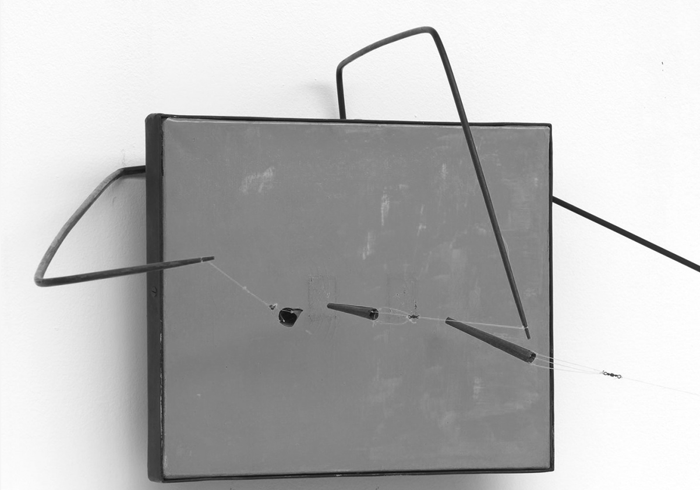Takis, the Greek artist who pioneered kinetic art, has died. Born Panayiotis Vassilakis, but forever known by his nickname, Takis started to incorporate light and movement into his sculptures in Paris in the late 1950s. He had arrived in France to escape an earlier life of political activism, which included a six-month jail term during the Greek Civil War, and immediately fell into bohemian circles that included William Burroughs and Brion Gysin. His work developed at the time included the Signals series, elongated steel poles, variously with lights or small blocks of bronze precariously mounted at the top. Takis’s other iconic body of work included Telepaintings, in which metal steel forms hung from a the gallery ceiling appear to be about to piece monochrome canvases, attracted to the surface by magnets secreted on the verso.
Reviewing the artist’s 1964 show inaugurating the new Signals gallery in London (named after Takis’s sculptures) for The Arts Review, Guy Burn wrote: ‘flashing signals on tall stalks synchronised in syncopation, impassive totems with a relentless message, electro-magnets holding their prey, spanners and metal rods, helplessly hypnotised and quivering in mid air, white spheres which sway and dart ecstatically in an endless ballet where no movement is ever repeated, and glaring cathode ray tubes sending out a sizzling violet glow… For those who care for escapism, and that means most people, I suggest that they sidestep their own problems in this world and renew their sense of the marvellous by visiting this show and experiencing the presence of pure energy’.
The artist’s work, currently on show at Tate Modern in London, has been the subject of numerous international surveys. He has also undertaken several public commissions, including in the gardens of the UNESCO headquarters in Paris.
12 August 2019
